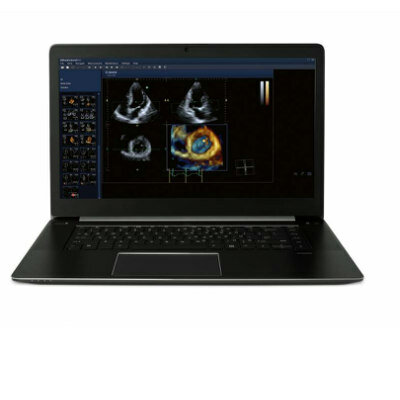Dose Monitoring Solution Partnership Initiated to Optimize Radiation Exposure Data Across Modalities, Departments, and Institutions
By MedImaging International staff writers
Posted on 10 Dec 2014
A new system helps organizations to manage, analyze and balance their radiation dose management.Posted on 10 Dec 2014
A new dose monitoring system provides data on dose at the study, patient, device, modality, or institution level and helps ensure compliance with regulations and highlights conformance to guidelines. The system supports radiology best practices and better-informed decisions by physicians.
Agfa HealthCare (Mortsel, Belgium) reported that it has signed an agreement with Qaelum (Leuven, Belgium) for a strategic alliance on a dose monitoring system, to support the dose management requirements of hospitals and imaging networks. Chief focus will be on the Europe, the Middle East and Africa (EMEA) region. Radiation exposure is an issue for every player in a patient’s treatment, from the patient, to the referring physician, to the radiology department, to regulatory bodies and to researchers. The dose monitoring solution will enable organizations to manage, analyze, and balance their radiation dose management.
With the strategic alliance, Agfa HealthCare’s dose monitoring system will include Qaelum’s tqm [total quality monitoring] DOSE platform for patient radiation dose analysis, monitoring, and improvement in digital imaging. The dose management system integrates in existing picture archiving and communication system (PACS) settings and gathers pertinent dose and metadata data. It then uses this information to provide radiation dose analyses at the study, patient, device, modality, institution, or regional level. Information on radiation exposure levels can support the referring physician in making a better-informed decision, while allowing the radiology department to conform to best practices and to regulations, for example. The platform also provides all the tools needed to perform root cause analysis, to better determine and solve potential problems.
“Qaelum is a leader in advanced dose management software solutions,” noted Willy Rosé, head of marketing information technology (IT) EMEA of Agfa HealthCare. “Our strategic alliance will help support medical imaging departments’ goal of providing ALARA [as low as reasonably achievable] compliant X-ray imaging protocols, as well as optimized workflows and quality assurance, while maximizing the use of existing resources and investments.”
“We are delighted to be working with Agfa HealthCare as part of this innovative and forward thinking initiative,” said Jurgen Jacobs, CEO and co-founder of Qaelum. “By combining our own strengths in dose management with the flexibility and functionality of Agfa HealthCare’s solutions, we can now offer healthcare enterprises a distinctive solution that addresses many of today's challenges with reporting patient radiation dose and enables genuine improvement. Our combined solution will help institutions drive more value from their existing PACS/RIS investments, now and into the future.”
Agfa HealthCare dose monitoring solution with Qaelum tqm|DOSE platform is not yet available in the United States or Canada.
Qaelum, NV is a medical software solutions provider advocating patient safety and quality improvement in medical imaging environments. The company began as an academic project at the University Hospitals of Leuven.
Related Links:
Agfa HealthCare
Qaelum














